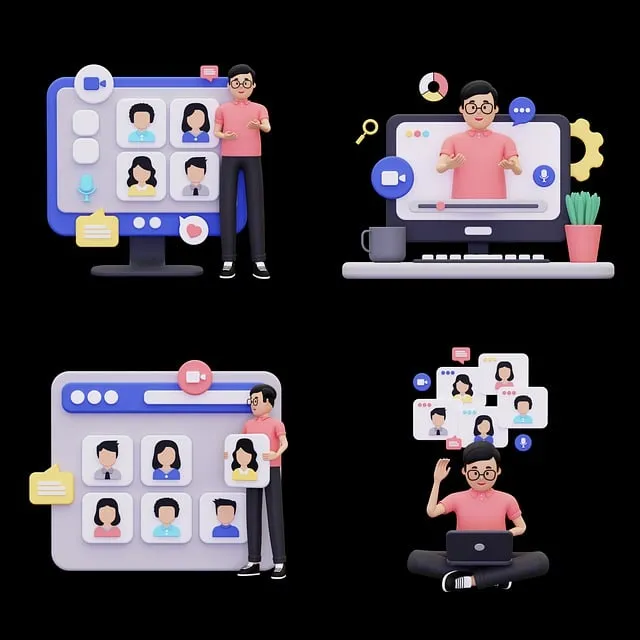In investigative journalism, discreet web surfing is a vital tool for uncovering truths within niche communities like luxury car enthusiasts and collectors. It allows journalists to access exclusive information, build trust with sources, and protect informants' safety while ensuring investigation integrity and online privacy in the digital age. By using advanced search techniques and anonymous browsing tools like Tor browsers and VPNs, journalists can navigate underground forums without leaving digital footprints, facilitating unbiased investigations into potential illicit activities within these exclusive communities. However, ethical considerations and compliance with privacy laws are crucial for responsible use of these methods.
In the pursuit of exposing corruption, journalists often face significant risks. Anonymizing search techniques are a powerful tool for reporters investigating sensitive topics like luxury car corruption among enthusiasts and collectors. This article delves into the critical need for online anonymity in investigative journalism, detailing discreet web surfing methods that uncover illicit networks. We explore tools to safeguard journalist identities while providing an ethical framework and legal insights for responsible data collection practices.
- Understanding the Need for Anonymity in Investigative Journalism
- The Role of Discreet Web Surfing in Uncovering Luxury Car Corruption
- Tools and Techniques for Safeguarding Journalist Identity Online
- Ethical Considerations and Legal Implications of Anonymized Data Collection
Understanding the Need for Anonymity in Investigative Journalism

In the realm of investigative journalism, where uncovering hidden truths and exposing corruption is paramount, anonymity plays a crucial role. Journalists often find themselves navigating intricate websof information, requiring them to maintain discretion during their discreet web surfing sessions, especially when delving into sensitive topics like luxury car enthusiasts and collectors. This secrecy is not just about personal safety; it’s a professional necessity to protect sources, preserve the flow of information, and ensure the integrity of the investigation.
Anonymity allows journalists to access exclusive insights and build trust with informants who may otherwise be hesitant to share detailed knowledge, particularly in underground communities or when discussing illicit activities. It provides a safe space for whistleblowers to come forward without fear of retribution, fostering a culture of transparency and accountability. In the digital age, where online footprints can easily expose identities, maintaining anonymity becomes an art, ensuring journalists can continue to dance on the delicate tightrope between uncovering corruption and safeguarding their own privacy.
The Role of Discreet Web Surfing in Uncovering Luxury Car Corruption

In the pursuit of uncovering luxury car corruption, discreet web surfing plays a pivotal role for journalists and investigators. By employing advanced search techniques and anonymous browsing tools, professionals can navigate the digital landscape without leaving traces, enabling them to unearth hidden connections and illicit activities within exclusive automotive communities. These enthusiasts and collectors often engage in intricate online discussions, share confidential information, and facilitate transactions through dedicated forums and platforms, making it crucial for investigators to participate in this virtual space discreetly.
Discreet Web Surfing for Luxury Car Enthusiasts and Collectors allows journalists to gain unprecedented insights into the luxury car market’s underbelly. They can monitor suspicious patterns, identify potential sources of corruption, and track illicit dealings that may otherwise remain hidden behind layers of privacy and exclusivity. This clandestine approach ensures that investigations remain unprejudiced and provides a robust foundation for uncovering the truth in the intricate web of luxury car enthusiasts and collectors.
Tools and Techniques for Safeguarding Journalist Identity Online

In the digital age, where online trails are easily tracked, journalists delving into corruption cases must adopt discreet web surfing techniques to safeguard their identities. This involves utilizing specialized tools and software designed for anonymous browsing, such as Tor browsers, which route internet traffic through multiple servers, obscuring the user’s IP address and location.
Additionally, encryption technologies like Virtual Private Networks (VPNs) further protect journalists by encrypting internet data, making it unreadable to third parties. Combining these tools with careful online behavior, such as avoiding personal details in search queries and using temporary email addresses, ensures a higher level of anonymity while conducting investigations. This is especially crucial for luxury car enthusiasts and collectors who often require discreet surfing habits to maintain their privacy during high-profile searches.
Ethical Considerations and Legal Implications of Anonymized Data Collection

The ethical considerations surrounding discreet web surfing are particularly sensitive when journalists are involved, especially when investigating corruption. While anonymizing data collection can protect individuals’ privacy and encourage honest reporting, it also raises questions about accountability and transparency. Journalists must ensure that their methods do not infringe on personal rights or promote misinformation. Striking a balance between preserving anonymity and maintaining the integrity of the investigation is crucial to upholding ethical standards in journalism.
Legally, anonymized data collection for such inquiries requires a nuanced understanding of privacy laws and regulations, especially in regions with stringent data protection measures. Journalists must adhere to legal frameworks that safeguard personal information while permitting investigations into illicit activities. The use of disguised or pseudonymous data can be a legal gray area, necessitating careful consideration and, where applicable, cooperation with legal experts to ensure compliance and protect both the journalists’ rights and those they are investigating.
In conclusion, anonymizing search plays a pivotal role in empowering journalists to expose corruption without compromising their safety or the integrity of their sources. By employing discreet web surfing techniques tailored for luxury car enthusiasts and collectors, investigators can uncover illicit activities while maintaining ethical standards and legal compliance. This approach ensures that the pursuit of truth remains robust, even in the face of potential backlash. Through the strategic use of online privacy tools and a thoughtful consideration of the broader implications, journalists can continue to provide crucial public interest reporting.
